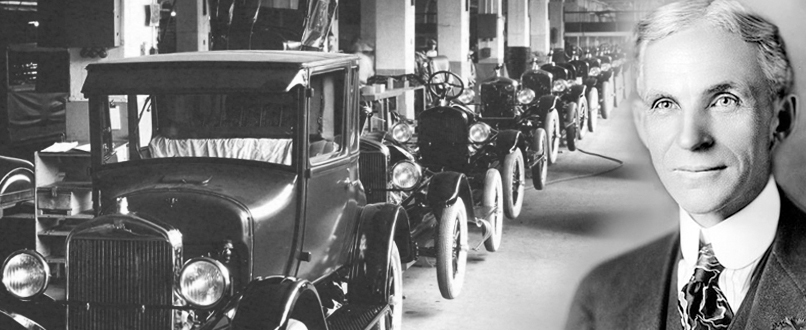December 1
December 15
2021
History Matters
Showing our children that their past is prelude to their future
America’s “second” Revolution—the Industrial of the 19th and 20th centuries—was pioneered by inventors, engineers, scientists, and—Henry Ford—arguably the most prolific. In 1908, he reset the way in which people traveled with the debut of his Model T, a “simple, sturdy and relatively inexpensive” motor car, according to History.com.
Five years later—on December 1, 1913–Ford transformed his “horseless carriage” into a faster, cheaper machine, and incorporated an assembly line that permitted efficient mass production; up until then half a day was required to build each automobile; now, with the modernized manufacturing methods, only an hour and a half was necessary.
Ford was determined to ensure that “everybody will have one.”
“By 1920, there were over eight million registrations. The 1920s saw tremendous growth in automobile ownership, with the number of registered drivers almost tripling to twenty-three million by the end of the decade,” observed the U.S. History Website.
The Grateful American Book Prize recommends I Invented the Modern Age: The Rise of Henry Ford by Richard Snow.

On December 4, 1783–three months after the official end of the American revolution, George Washington threw a party for his officers. It was a bittersweet occasion for the General, who had conducted a six-year battle against the Redcoats to ensure a free American homeland; now, he was traveling to Annapolis, MD to resign his commission.
History.com noted that “Observers of the intimate scene at Fraunces Tavern in New York City, described Washington as ‘suffused in tears,’ embracing his officers one by one after issuing his farewell.”
That night, Washington told them: “With a heart full of love and gratitude, I now take leave of you. I most devoutly wish that your latter days may be as prosperous and happy as your former ones have been glorious and honorable. I cannot come to each of you but shall feel obliged if each of you will come and take me by the hand.”
For more information, the Grateful American Book Prize recommends Washington’s Farewell to His Officers After Victory in the Revolution by Stuart Murray.

The rough and tumble Buffalo Bill Cody of the Wild West gave up his life on the American frontier, but he held on to his six-guns for an 1872 trip to Chicago; on December 11 of that year, he starred in a stage production of The Scouts of the Prairie. The play was panned by the critics, but audiences thronged to see him at the theatre.
By that time, Buffalo Bill was a national folk hero because a dime novel author, Ned Buntline, had portrayed him as “a mixture of incredible fact and romantic fiction,” according to the World History Project. His books glorified Cody’s life and times, chronicling his role “taming the wild, wild west,” in 1,700 volumes.
Cody liked show business so much, that he performed for another decade; then, in 1883, he created Buffalo Bill’s Wild West Show, about his real-life adventures. It toured the country 30 years, and barnstormed Europe eight times.
He died in 1917.
The Grateful American Book Prize recommends Buffalo Bill Cody: The Man Behind the Legend by Robert A. Carter.

History Matters is a biweekly feature courtesy of The Grateful American Book Prize.



